Грег Иган - Permutation City
Здесь есть возможность читать онлайн «Грег Иган - Permutation City» весь текст электронной книги совершенно бесплатно (целиком полную версию без сокращений). В некоторых случаях можно слушать аудио, скачать через торрент в формате fb2 и присутствует краткое содержание. Жанр: Фантастика и фэнтези, Киберпанк, на английском языке. Описание произведения, (предисловие) а так же отзывы посетителей доступны на портале библиотеки ЛибКат.
- Название:Permutation City
- Автор:
- Жанр:
- Год:неизвестен
- ISBN:нет данных
- Рейтинг книги:4 / 5. Голосов: 1
-
Избранное:Добавить в избранное
- Отзывы:
-
Ваша оценка:
- 80
- 1
- 2
- 3
- 4
- 5
Permutation City: краткое содержание, описание и аннотация
Предлагаем к чтению аннотацию, описание, краткое содержание или предисловие (зависит от того, что написал сам автор книги «Permutation City»). Если вы не нашли необходимую информацию о книге — напишите в комментариях, мы постараемся отыскать её.
Permutation City — читать онлайн бесплатно полную книгу (весь текст) целиком
Ниже представлен текст книги, разбитый по страницам. Система сохранения места последней прочитанной страницы, позволяет с удобством читать онлайн бесплатно книгу «Permutation City», без необходимости каждый раз заново искать на чём Вы остановились. Поставьте закладку, и сможете в любой момент перейти на страницу, на которой закончили чтение.
Интервал:
Закладка:
The truth was, the thought of finally surrendering that unity made him dizzy with fear. It was the last vestige of his delusion of humanity. The last big lie.
And as Daniel Lebesgue, founder of Solipsist Nation, had written: "My goal is to take everything which might be revered as quintessentially human . . . and grind it into dust."
He returned to his seated body, and said, "I'll do it."
Kate smiled, raised his beating heart to her lips, and gave it a long, lingering kiss.
6
(Rip, tie, cut toy man)
JUNE 2045
Paul woke without any confusion. He dressed and ate, trying to feel optimistic. He'd demonstrated his willingness to cooperate; now it was time to ask for something in return. He walked into the study, switched on the terminal, and called his own number. The djinn answered at once.
Paul said, "I'd like to talk to Elizabeth."
Squeak. "That's not possible."
"Not possible? Why don't you just ask her?"
Squeak. "I can't do that. She doesn't even know you exist."
Paul stared at him coldly. "Don't lie to me, it's a waste of time. As soon as I had a Copy who survived, I was going to explain everything --"
Squeak. The djinn said drily, "Or so we thought."
Paul's certainty wavered. "You're telling me that your great ambition is finally being fulfilled -- and you haven't even mentioned it to the one woman . . . ?"
Squeak. Durham's face turned to stone. "I really don't wish to discuss it. Can we get on with the experiment, please?"
Paul opened his mouth to protest -- and then found he had nothing to say. All his anger and jealousy suddenly dissipated into . . . embarrassment. It was as if he'd just come to his senses from a daydream, an elaborate fantasy of a relationship with someone else's lover. Paul and Elizabeth. Elizabeth and Paul. What happened between them was none of his business. Whatever his memories suggested, that life wasn't his to live anymore.
He said, "Sure, let's get on with the experiment. Time is just rushing by. You must have turned forty-five . . . what, a day ago? Many happy returns."
Squeak. "Thanks -- but you're wrong. I took some shortcuts while you were asleep: I shut down part of the model -- and cheated on most of the rest. It's only the fourth of June; you got six hours' sleep in ten hours' real time. Not a bad job, I thought."
Paul was outraged. "You had no right to do that!"
Squeak. Durham sighed. "Be practical. Ask yourself what you'd have done in my place."
"It's not a joke! "
Squeak. "So you slept without a whole body. I cleaned a few toxins out of your blood at a non-physiological rate." The djinn seemed genuinely puzzled. "Compared to the experiments, that's nothing. Why should it bother you? You've woken up in exactly the same condition as you'd be in if you'd slept in the normal way."
Paul caught himself. He didn't want to explain how vulnerable it made him feel to have someone reach through the cracks in the universe and relieve him of unnecessary organs while he slept. And the less the bastard knew about his Copy's insecurities, the better -- he'd only exploit them.
He said, "It bothers me because the experiments are worthless if you're going to intervene at random. Precise, controlled changes -- that's the whole point. You have to promise me you won't do it again."
Squeak. "You're the one who was complaining about waste. Someone has to think about conserving our dwindling resources."
"Do you want me to keep on cooperating? Or do you want to start everything again from scratch?"
Squeak. The djinn said mildly, "All right, you don't have to threaten me. You have my word: no more ad hoc intervention."
"Thank you."
Conserving our dwindling resources? Paul had been trying hard not to think about money. What would the djinn do when he could no longer afford to keep him running -- if Paul chose not to bale out once the experiments were over? Store a snapshot of the model, of course, until he could raise the cash flow to start it up again. In the long term, set up a trust fund; it would only have to earn enough to run him part-time, at first: keep him in touch with the world, stave off excessive culture shock . . . until the technology became cheap enough to let him live continuously.
Of course, all these reassuring plans had been made by a man with two futures. Would he really want to keep an old Copy running, when he could save his money for a deathbed scan, and "his own" immortality?
Squeak. "Can we get to work, now?"
"That's what I'm here for."
This time, the model would be described at the standard time resolution of one millisecond, throughout -- but the order in which the states were computed would be varied.
Squeak. "Experiment two, trial number one. Reverse order."
Paul counted. "One. Two. Three." Reverse order. After an initial leap into the future, he was now traveling backward through real time. It would have been a nice touch if he'd been able to view an external event on the terminal -- some entropic cliche like a vase being smashed -- knowing that it was himself, and not the scene, that was being "rewound" . . . but he knew that it couldn't be done (quite apart from the fact that it would have ruined the experiment, betraying the difference between subject and control). In real time, the first thing to be computed would be his model-time-final brain state, complete with memories of everything that "had happened" in the "preceding" ten seconds. Those memories couldn't include having seen a real broken vase assemble itself from fragments, if the vase hadn't even been smashed yet. The trick could have been done with a simulation, or a video recording of the real thing -- but that wouldn't have been the same.
"Eight. Nine. Ten." Another imperceptible leap into the future, and the djinn reappeared.
Squeak. "Trial number two. Odd numbered states, then even."
In external terms: he would count to ten, skipping every second model-time moment . . . then forget having done so, and count again, going back and filling in the gaps.
And from his own point of view? As he counted, once only, the external world -- even if he couldn't see it -- was flickering back and forth between two separate regions of time, which had been chopped up into seventeen-millisecond portions, and interleaved.
So . . . who was right? Paul thought it over, half seriously. Maybe both, descriptions were equally valid; after all, relativity had abolished absolute time. Everybody was entitled to their own frame of reference; crossing deep space at close to lightspeed, or skimming the event horizon of a black hole. Why shouldn't a Copy's experience of time be as sacrosanct as that of any astronaut?
The analogy was flawed, though. Relativistic transformations were smooth -- possibly extreme, but always continuous. One observer's space-time could be stretched and deformed in the eyes of another -- but it couldn't be sliced like a loaf of bread and then shuffled like a deck of cards.
"Every tenth state, in ten sets."
Paul counted -- and for argument's sake, tried to defend his own perspective, tried to imagine the outside world actually cycling through fragments of time drawn from ten distinct periods. The trouble was . . . this allegedly shuddering universe contained the computer which ran the whole model, the infrastructure upon which everything else depended. If its orderly chronology had been torn to shreds, what was keeping him together, enabling him to ponder the question?
"Every twentieth state, in twenty sets."
Читать дальшеИнтервал:
Закладка:
Похожие книги на «Permutation City»
Представляем Вашему вниманию похожие книги на «Permutation City» списком для выбора. Мы отобрали схожую по названию и смыслу литературу в надежде предоставить читателям больше вариантов отыскать новые, интересные, ещё непрочитанные произведения.
Обсуждение, отзывы о книге «Permutation City» и просто собственные мнения читателей. Оставьте ваши комментарии, напишите, что Вы думаете о произведении, его смысле или главных героях. Укажите что конкретно понравилось, а что нет, и почему Вы так считаете.

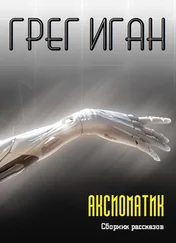


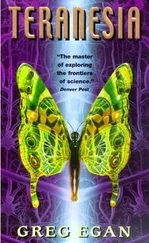
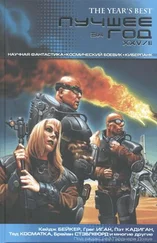

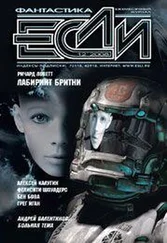
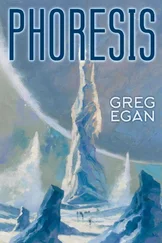
![Грег Иган - Рассказы [компиляция]](/books/419837/greg-igan-rasskazy-kompilyaciya-thumb.webp)
